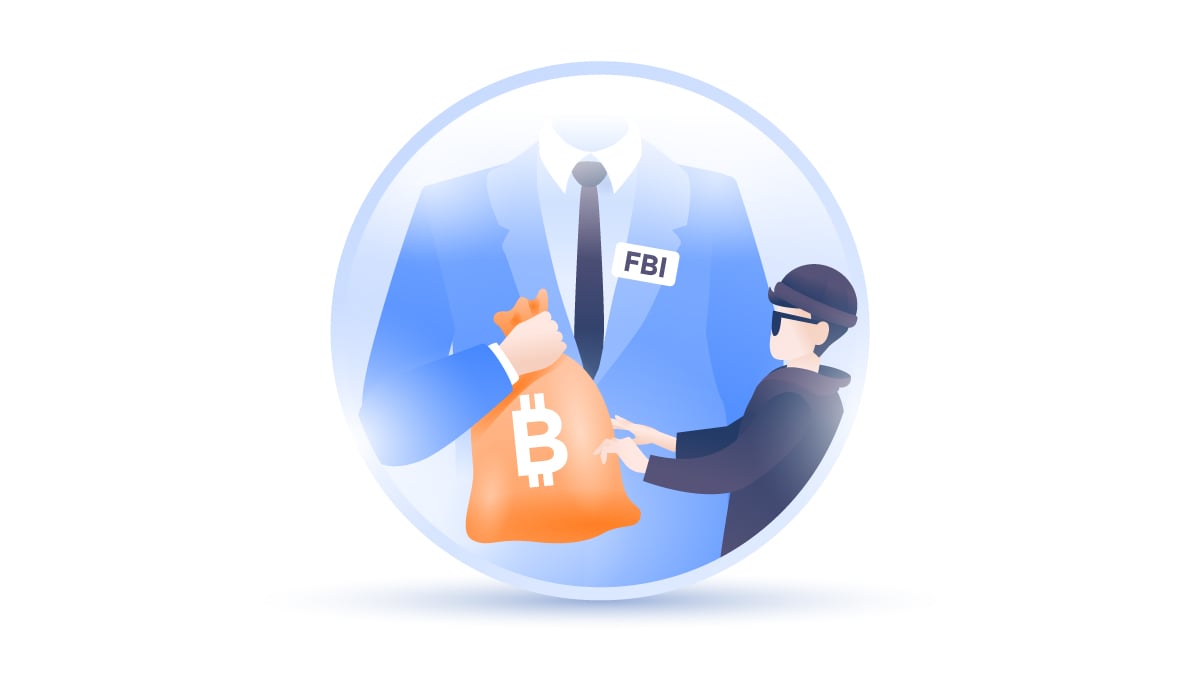NFT for dummies: What is a non-fungible token, and how does it work?
A non-fungible token (or NFT) is a digital identifier representing an asset — like a piece of art, media, or digital content. NFTs are stored on the blockchain to prove ownership and authenticity of unique digital or tangible items. Read on to find out how NFTs work and if they’re safe to use.
Contents
What is an NFT?
NFTs are a new type of digital asset that sits on a blockchain and is secured by cryptography. An NFT can represent any tangible or digital item — from a work of art to a plot of virtual real estate and even tweets.
Non-fungible tokens are used to prove ownership and authenticity of these assets using blockchain technology. Each NFT is unique and can’t be replicated, so they’re great for representing one-of-a-kind items. Some blockchain experts have likened NFTs to digital passports since each non-fungible token contains a unique, non-transferable identity.
While NFTs may seem complicated at first, once you understand how they work, you’ll see that they’re relatively straightforward. We’ll look at all of that in more detail.
How do NFTs work?
Non-fungible tokens are created using blockchain technology — a decentralized digital system for recording and storing information. Each NFT contains a unique identification code and metadata stored on the blockchain, making replicating it impossible.
NFTs follow the ERC-721 (Ethereum Request for Comment #721) standard, which defines the rules for creating unique NFTs on the Ethereum blockchain.
People can purchase NFTs like any other asset, and the ownership information is recorded on the blockchain. The cost of NFTs varies, but some non-fungible tokens can sell for millions of dollars. For example, in 2011, a group of NFTs created by artist Beeple sold for $69 million. The value of each NFT is determined by supply and demand — the more potential buyers, the higher the price.
NFTs provide a way to authenticate and trade digital and physical items with a lower probability of fraud. The unique identification code and metadata make it easy to verify authenticity and ownership when completing transactions.
What are NFTs used for?
While non-fungible tokens are often used for selling and purchasing digital assets (like art, collectibles, or in-game items), they can also be used to tokenize physical assets.
These may include real estate, luxury items, or artwork. Here are some examples of how NFTs could be used:
- Art. NFTs can be used to sell both physical and digital artwork.
- Collectibles. Collectors can buy NFTs that represent digital or physical collectibles (e.g., sports memorabilia, figurines, books, etc.)
- Trading cards. People can also buy tokenized trading card NFTs.
- Virtual worlds. You can buy virtual world NFTs that give you ownership of anything from digital property to avatar wearables.
- Domain names. Users can buy NFTs that represent their domain name for selling at a later date or for proving ownership of the domain.
- Music. Music NFTs represent a specific piece of music or sound recording.
- Photography. Photographers can create and sell digital versions of their work as NFTs.
- In-game items. Online players can buy NFTs that can be used in the game or sold later at a higher price.
- Utility. NFTs can represent club memberships or unlock certain perks.
Additionally, some NFT owners purchase NFTs as a speculative investment: they buy something that isn’t worth much now with the expectation that the value of the NFT will increase over time.
Real-life NFT examples
NFTs have been around for almost a decade, with some major NFT projects making the headlines. Let’s look at some examples of the most well-known NFT projects:
- Quantum. Quantum was the first known NFT, created in 2014 by Kevin McCoy and Anil Dash. It represented a video clip made by McCoy’s wife.
- CryptoKitties. The first major NFT project, CryptoKitties, launched in 2017. It allowed users to trade and collect unique digital cats on the Ethereum blockchain.
- GucciGhost. Luxury brand Gucci partnered with an artist Trevor Andrew, who used the brand’s intellectual property to create his own NFTs.
- Everydays: The First 5000 Days. This NFT represented a collage of 5,000 digital images taken on consecutive days by Mike Winkelmann (known professionally as Beeple).
- Nyan Cat. Nyan Cat is an animation created by artist Chris Torres using a well-known cat meme from 2011. The NFT sold for $600,000.
- RTFKT. This digital fashion company’s NFTs include limited-edition sneakers and virtual collectibles. RTFKT has collaborated with brands like Byredo and Rimowa and high-profile musicians like Steve Aoki.
- Decentraland. Decentraland is a 3D virtual world built on the Ethereum blockchain where users can create avatars, build structures and homes, and interact with other users.
- Bored Ape Yacht Club (BAYC). Bored Ape NFTs are unique digital collectibles. Each ape is unique and programmatically generated, with some apes rarer than others.
- NBA Top Shot. NBA Top Shot is an NFT marketplace where users can buy and trade basketball video clips. The marketplace launched in 2020 as a partnership between the NBA and Dapper Labs (the creators of CryptoKitties).
- Grimes’ WarNymph. WarNymph is a digital art piece created by artist and singer Grimes. She sold her NFT collection for $6m.
- CryptoPunks. CryptoPunks are a collection of 10,000 uniquely generated pixel art images created by Larva Labs software development company.
How to create NFTs
Creating and selling NFTs can be lucrative. The good news is that anyone can create an NFT and sell it on a dedicated marketplace (as long as they can access the right tools).
Here are the general steps for creating and selling an NFT:
- Decide what you want to create. Since NFTs typically represent a piece of digital art, the first step is choosing the digital asset you want to turn into an NFT. This asset could be any digital content, e.g., an image, a video, or a music file. Remember that you must own the rights to the digital media you use, or you could get in trouble for legal reasons.
- Choose a blockchain. Select a blockchain platform to use for creating and storing your NFT. Platforms other NFT artists use include Ethereum, Flow, and Binance Smart Chain.
- Create a digital wallet. Choose a wallet that supports the blockchain you’ll be using. To create a wallet, download the crypto wallet app, then create a username and password. The three most popular crypto wallets for NFTs are MetaMask, CoinBase, and Ledger Nano X.
- Choose an NFT platform. Next, you’ll need to choose a platform for creating your NFT. You’ll find many platforms available, and your best bet is to choose a full-service marketplace that allows you to create, list, and sell your NFT. The most popular platforms include OpenSea, Solanart, and Binance Exchange.
- Create the NFT. Connect your wallet to your chosen NFT platform, and upload your digital work of art. Make sure you set the terms and conditions for your NFT, such as the price, royalties, and ownership rights.
- List the NFT for sale. You’ll be able to list your NFT on most platforms for free. However, you may need to pay a nominal fee to the NFT marketplace when someone buys your NFT.
Why are NFTs so expensive?
A single digital image NFT can sell for millions of dollars. It’s not like they’re da Vinci paintings, so why are NFTs so expensive?
Let’s look at some of the main reasons why buyers pay so much to own non-fungible tokens:
- Scarcity. Each NFT is unique, meaning there’s only one of each available. Scarcity increases their value per unit of demand. Specific NFT collections may also launch in limited quantities, meaning their value will rise once sold. A good example is the CryptoPunks project, with only 10,000 unique CryptoPunks. This relatively small number of CryptoPunks available has pushed up the price of the entire collection to $2 billion.
- Authenticity. Storing the NFTs on the blockchain means verifying their authenticity is easy. Each NFT’s uniqueness is shown through the metadata, and no one can replicate them. It isn’t even possible to forge a copy of an NFT, so their overall value increases. The most expensive NFT sold to date (Pak’s artwork titled “The Merge”) cost as much as $91.8m.
- Social recognition. Some NFT owners may enjoy the social recognition of owning a one-of-a-kind NFT. The buyer’s wallet address and the price paid are recorded on the blockchain, and everyone can see this information. Some individuals may feel a sense of pride and enjoy the social “hype” that comes from acquiring a unique NFT.
How to buy NFTs
To buy an NFT, you’ll need a digital wallet compatible with your chosen NFT marketplace. Here are several other steps you’ll need to follow when purchasing an NFT:
- Connect your digital wallet to the NFT platform selling your chosen NFT.
- Fund your digital wallet with cryptocurrency. Check what cryptocurrencies the platform accepts (most only accept Ether or Bitcoin).
- Find the NFT you want to buy. You may already know what you’re looking to purchase — or you can browse the marketplace’s selection of NFTs.
- Click “Buy.” Follow the instructions on the screen to complete your transaction.
Once you’ve purchased the NFT, you will be able to manage it in your digital wallet.
Are NFTs safe?
A survey by NordVPN showed that 68% of respondents who were familiar with NFTs were concerned about their potential security risks. So, are NFTs safe — or were the survey respondents right to be concerned?
Purchasing an NFT from a reputable marketplace is generally considered safe because NFTs are stored in crypto wallets and rely on blockchain technology.
However, buyers and owners of NFTs still need to consider several potential security risks. The two biggest threats are phishing attacks and malware infections.
In 2022, OpenSea, one of the biggest NFT marketplaces, warned customers about email phishing attacks. The targeted attacks came after a major data leak, impacting everyone who has shared their email with OpenSea in the past.
NordVPN survey respondents also said they’re worried about fake NFTs: 48% of those surveyed said they fear bad actors could impersonate famous NFT creators, selling fake works in their name.
Though impersonating creators and artists requires a degree of sophistication, this doesn’t discourage scam artists. The increasing popularity of NFTs has resulted in many scam NFT marketplaces and sites where you can buy NFTs at a fraction of their actual cost.
For example, an NFT from the Bored Ape Yacht Club (Ape #4935) currently costs $124,188, but a fake seller could list a copy for a much lower price. Someone new to NFTs may think they’re getting an excellent deal — when in reality, they’re paying a few hundred dollars for a fake NFT that’s not worth anything.
Like with other investments or expensive purchases, you should be mindful of criminals looking to make a quick profit. Staying vigilant and taking the necessary steps to prevent malicious actors from taking advantage of you will keep you safe.
How to secure your NFTs
If you’ve recently invested in a non-fungible token, you’ll want to make sure it’s safe. NFTs are typically worth a lot of money, which is why they’re so appealing to cybercriminals. Here’s how to keep your NFTs safe:
- Use a secure, reliable crypto wallet. Choose a wallet that prioritizes user security. Secure your wallet with a strong password, two-factor authentication (2FA), and biometric authentication.
- Keep your private keys safe. Store your private keys securely, like an offline hardware crypto wallet or a password manager.
- Be mindful of phishing scams. Don’t let scammers take advantage of you — be wary of suspicious emails or messages that ask for your private keys or other sensitive information. Verify the authenticity of any app or website before providing information.
- Research the NFT marketplace and project. Before buying an NFT, make sure you do your research. Check that it’s a legitimate and reputable company by looking at reviews and feedback from other users. Look up the project creators and check their track record to ensure you’re not buying something fake.
- Monitor your NFT transactions. Keep an eye on your NFT transactions to help spot unauthorized activity. If you notice anything suspicious, immediately report it to the NFT marketplace or wallet provider.
- Check the contract code. Review the contract code for errors and vulnerabilities.
- Avoid public Wi-Fi. Don’t access your NFT using public Wi-Fi. These networks are often unsecured and may be vulnerable to hacking.
- Use a VPN. With a VPN, you can encrypt your data while in transit, hiding your IP address and making unsecured Wi-Fi connections much safer. One NordVPN account can cover up to six devices, offering continuous, premium protection.
- Use malware protection. Protecting your devices from malware is paramount. If malware infects your device, you could lose your NFT or the private keys for accessing it. Use features like NordVPN’s Threat Protection to protect your devices from malware. Threat Protection blocks malicious URLs, ads, and trackers, plus scans your downloaded files for malware.
What is the future of NFTs?
NFTs are still evolving, and we can’t predict the future with complete accuracy. However, based on the growth, development, and use of NFTs until now, we could speculate that non-fungible tokens could become more mainstream.
Companies may start using NFTS for more than digital art, gaming assets, and collectibles in the future. Their future use cases may include physical real estate, metaverse, and cars.
We may also see more NFT integration with other technologies, like augmented reality, artificial intelligence, and virtual reality, to create more interactive and immersive experiences.
We may see a push from environmentally conscious groups for more sustainable and eco-friendly NFT practices. There will likely be new standards and platforms for creating, selling, and trading NFTs.
Overall, the future of NFTs will be shaped by technological factors and evolving industry practices and standards.


